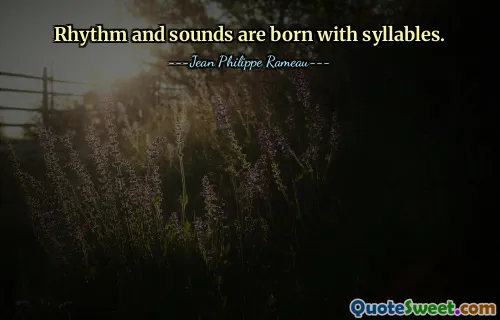Jean Philippe Rameau was a prominent French composer and music theorist of the Baroque era, born in 1683. He is best known for his operas and contributions to the development of French classical music. Rameau's music is characterized by its innovative harmonic language and rich orchestral textures, making him a significant figure in the transition from the Baroque to the Classical style. Rameau's operatic works, such as "Hippolyte et Aricie," showcase his ability to blend drama with intricate musical forms, paving the way for future composers. His theoretical writings, particularly "Traité de l'harmonie," established foundational concepts in music theory, influencing generations of musicians and theorists. Throughout his career, Rameau faced both acclaim and criticism. While he was celebrated for his creativity, some contemporaries preferred the styles of previous composers. Nevertheless, his legacy endures, and his innovations in harmony and orchestration continue to resonate in Western classical music.
Jean Philippe Rameau was a crucial figure in the evolution of French music, marked by his bold approaches to harmony and structure. His work not only reflected the Baroque style but also hinted at the new possibilities that would emerge in the Classical period. Rameau's compositions remain a testament to his genius, influencing countless musicians over the centuries.
His operas particularly highlight his skill in merging theatrical storytelling with complex musical ideas, making them stand out in the repertoire. Rameau's influence extended beyond the stage, as his theoretical writings laid the groundwork for harmonic understanding that prevails in Western music education to this day.
Despite facing challenges and opposition during his lifetime, Rameau's musical innovations secured his place in history as a pioneering composer. His works continue to be performed, studied, and admired, confirming his status as a cornerstone of classical music tradition.
Mehr anzeigen »
Today Birthdays
1887 -
Robinson Jeffers
1864 -
George Washington Carver
1936 -
Stephen Ambrose
1953 -
Pat Benatar
1949 -
George Foreman
1945 -
Rod Stewart
1936 -
Robert Woodrow Wilson
1938 -
Donald Knuth
1974 -
Hrithik Roshan
1956 -
Antonio Munoz Molina
1980 -
Sarah Shahi
1936 -
Al Goldstein
1939 -
David Horowitz
1955 -
Michael Schenker
1986 -
Abbey Clancy
1959 -
Chris Van Hollen
1989 -
Emily Meade
